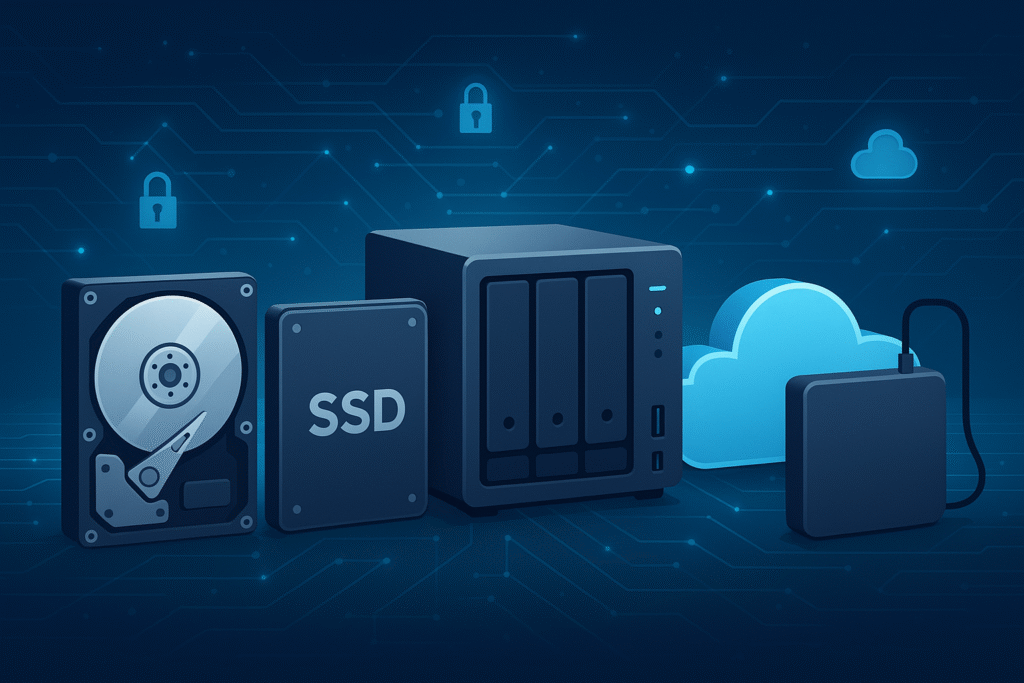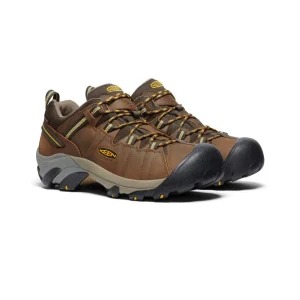
In the digital age, data is the lifeblood of every business decision, process and customer encounter. Whether you are a small start-up, a medium business or a large enterprise, the way you store, manage and protect your data is crucial to your productivity, efficiency and resilience. When it comes to selecting the right storage for your business, capacity is not the only consideration, and nor is price: more importantly, your decision depends on how you balance factors like performance, scalability, and security with the challenges faced by your business. Even with all these different options — traditional hard drives, cloud solutions and the like — there’s a lot to consider to figure out which of these is the right fit for you.
The Importance of Storage Devices to Business Operations
We are no longer bound by data storage to mere files and folders. Modern applications have workloads that depend on storage for hosting our applications, databases, backups, and secure collaboration, which results in today’s businesses relying on storage. For industries such as finance, healthcare and e-commerce, data is commonly the top asset. Processes grind to a halt, decision-making becomes sluggish, and the risk of non-compliance escalates without a reliable means of storage.
The correct storage solution keeps your key data available all the time, supports continuous expansion while you grow and eliminates the impact on downtime that is created by failed hardware. It’s not only about storing information but also enabling continuity of the business, securing sensitive information, and driving insights from continuously growing volumes of data.
Main Business Storage Types
As businesses evaluate storage devices, there are typically several primary categories. They each have unique strengths, trade-offs and optimal uses.
Hard Disk Drives (HDDs)
HDDS are classical mechanical drives that have served as the primary means for business storage needs for many years. They have high capacity at a low price, making them a sensible selection for companies storing in bulk and on a budget. However, since they depend on spinning platters, HDDs are slower and more susceptible to breakage in the long run compared to solid-state options.
Perfect for: Long-term (Archive) storage, secondary storage, and cost-per-gigabyte needs.
Solid-State Drives (SSDs)
And because SSDs utilize flash memory instead of spinning disks, their read and write times are much faster. They also require less power, produce less heat, and are immune to shock. SSDs are generally chosen in case of heavy data processing, fast booting, or requirement of real time work loads.
Ideal application: High performance databases, application servers and virtual machines that require high speed and reliability.
Hybrid Storage Solutions
Hybrid drives feature the large storage capacity of HDDs, but with a generous portion of flash memory to boost system performance. At a greater scale, some businesses blend SSDs for mission-critical workloads with HDDs for long-term storage in servers or data centres, creating a hybrid strategy.
Ideal for: Businesses with a mix of workloads that want to balance performance and costs.
Network-Attached Storage (NAS)
With both network-attached storage (NAS) and digital media server capabilities, the MB-35AV supports centralised storage for access by multiple users and many systems within a local network. They are ideal for SMB or remote office/branch office and work groups, in businesses that need the flexibility to share large amounts of data both inside and outside the office, without the complexity of supporting a larger infrastructure. Redundancy and backup capabilities are frequently incorporated in NAS appliances.
Ideal for: File sharing, team collaboration, and secure on-premise storage for SMEs.
Cloud Storage
Storage As A Service or a cloud based storage solution is practically infinitely scalable and accessible from anywhere the internet is available. They do away with physical infrastructure management but rely heavily on a stable online connection. When you’re considering migrating your sensitive data to the cloud, security and compliance matter.
Ideal for: Businesses in need for remote collaboration, expandable storage or disaster recovery options.
External Drives
External drives are still a popular option for businesses looking for portable and flexible storage. They are perfect for safe offsite backups, large files and to build additional capacity against deep infrastructure investment. For example, an External Hard Drive can be used as a handy business data backup medium.
Good for: offsite backups, portability, and businesses that don’t have heavy storage requirements and don’t qualify for enterprise-level solutions.
Storage Device Buying Guide What to Consider When Shopping for a Storage Device
Choosing the storage device that’s right for your company’s needs means taking a close look at both technical and strategic considerations. Here’s what you need to know:
Storage Capacity
First, you have to figure out how much data you need to be storing today, and how much you think you’ll need to store in the future. Companies frequently under-estimate the growth in their volume of data. Choosing scalable solutions can also save you years of irritation in that you won’t be forced to upgrade regularly.
Performance Requirements
Speed is critical when your apps depend on real-time access to data. If you are working on data processing that is data intensive, transaction processing in real-time processing or analytics operations at large-scale, go with the SSDs or hybrid systems. If your business has straightforward file storage requirements, HDDs or NAS drives might be more budget-friendly.
Security and Compliance
Every organization’s number one priority is the protection of data. Look in to storage options that have their own built in encryption, data redundancy and secure access controls. If you work in an industry that operates with heavy regulations, you need to know your storage system complies.
Reliability and Durability
Downtime can be costly for businesses, leading to lost productivity and thousands of dollars in wasted revenue. Highly available storage with redundancy RAID, or backup provides business continuity. Spending a little bit more for a sturdy device ensures that you take fewer chances of having to shut down clean and contain a large spill.
Scalability and Flexibility
As your business grows, so will your storage needs. Opting for products that can be scaled up—be that via more drives, integration with the cloud, or having the ability to expand via a modular approach—will also help to make sure your equipment lasts.
Cost Efficiency
Keep in mind the cost vs. the function is the most important. While I agree, SSDs are in fact faster – and significantly so – They also cost more per GB than HDDs. A mixed approach that leverages various storage forms and ways may offer the highest ROI (Return on Investment).
Common Use Cases Across Businesses
But the best storage solution can vary depending on industry needs:
- Creative industries, including design and video production, need to access massive multimedia files quickly and store them all with incredible capacity.
- Providers need to be able to store sensitive patient information and imaging records with a HIPAA compliant storage solution that’s secure.
- Retail and e-commerce organizations use fast SSDs to power databases, inventory systems and customer transactions.
Small businesses and freelancers could opt for portable, inexpensive external drives or NAS for backups and file sharing.
- Businesses tend to use hybrid storage that at its simplest combines in-house hardware with cloud services in order to have a trade-off between security, performance and price.
The Future of Business Storage
Data sets keep getting larger, and businesses are moving to more intelligent, environmentally friendly storage options. As with all things modern, AI and ML enables businesses to finely tune their storage management, predict hardware failures, and migrate data between fast and slower hardware without user intervention. The industry is also starting to pay more attention to sustainability, with energy-saving drives, and eco-friendly designs gaining traction.
Cloud will keep expanding, however physical devices will be important, especially for compliance-heavy verticals and customers that want local control. Hybrid solutions which bring the scalability of cloud without sacrificing on site security are more likely to lead the way.
Final Thoughts
The right storage device for your company is not a one-size-fits-all proposition. It involves assessing present needs, predicting future ones, and juggling performance, security, and budget. Be it the high capacity of HDDs, the speed of SSDs, the best-of-both-worlds of hybrid systems, or simply the mobility of portable drives, every option has its place.
By investing in the right storage infrastructure today, businesses are able to make certain that the data is available, the risks are minimized, and they have flexibility to grow in the future. Information is more than just the facts, it is the lifeblood for every decision, innovation and customer experience. Keeping it stored safely, effectively, and accessibly is one of the smartest business decisions any company can make.





